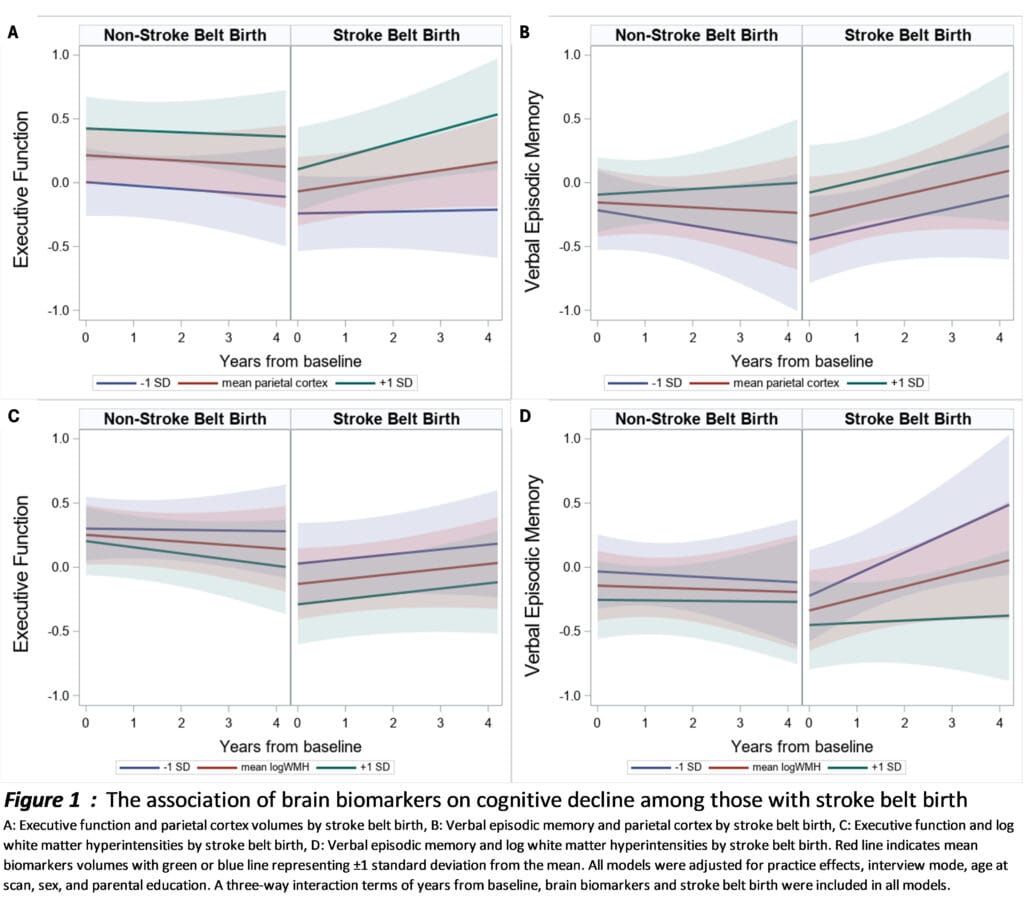Aging
The effect measure modification of stroke belt birth states on brain biomarkers and cognitive decline Yi Lor* Yi Lor Kristen M. George Rachel L. Peterson Alexander Ivan B. Posis Batool Rizvi Paola Gilsanz Rachel A. Whitmer
The Stroke Belt is an area in the US with high prevalence of stroke and stroke-related mortality. Stroke belt birth (SBB) is associated with worse cognition and a higher risk of dementia, yet less is known about cognitive changes in relation to neuroimaging markers of brain health among those with SBB. We examined whether SBB moderates the association of brain biomarkers and cognitive decline in Black participants.
We used data of older adults who received 3T MRI from two harmonized cohorts, KHANDLE and STAR. Multivariable linear mixed-effect models were used to test the associations of parietal cortical volumes and log white matter hyperintensity (WMH) volumes with executive function (EF) and verbal episodic memory (VEM) over 3 waves (mean 2.5 years). We assessed moderation by testing a three-way interaction (biomarkers-by-time-by-SBB) and comparing estimates from SBB-stratified models.
Of the 295 participants (mean age=68.6; SD=7.7), increased parietal cortex volumes were associated with better EF and VEM, and greater WMH was associated with worse VEM. SBB was associated with worse EF and VEM. The interaction of time, WMH, and SBB was significant (p=0.04) for VEM. Participants born in the Stroke Belt with ≤mean WMH had lower baseline cognition, but cognitive change over time was similar to those not born in the Stroke Belt (Figure 1; C, D). Those with SBB that had WMH 1 SD above the mean and those with SBB that had parietal cortex volumes 1 SD below the mean had consistently lower cognition over time than those with no SBB.
SBB and biomarkers were associated with cognition, but not decline. SBB moderated the associations of WMH and cognition such that participants with SBB who had worse brain health also had worse cognition and cognitive change while those with better brain health had similar changes to participants without SBB. Participants that were not born in the Stroke Belt may have more cognitive resilience compared to participants that were born there.

